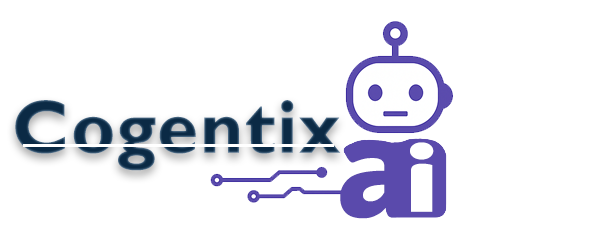Success Stories – How a Catering company Transformed Operations with AI-Driven Automation
In the fast-paced world of catering, where food freshness, accurate forecasting, and operational efficiency directly impact the bottom line, a prestige catering company faced challenges that threatened their growth and reputation. This case study examines how implementing an AI-powered inventory management system with proactive messaging capabilities helped this mid-sized catering company overcome its challenges and achieve remarkable business outcomes.
The Challenge
A regional prestige catering company serving approximately 200 events monthly, ranging from corporate lunches to large weddings, was struggling with inventory inefficiencies that created significant business problems:
Inventory wastage averaged 15-20% of food costs, substantially higher than the industry standard of 4-10%. For a company with annual food costs of $2.4 million, this inefficiency represented over $360,000 in wasted resources annually.
Manual inventory counts consumed nearly 25 hours per week of staff time, yet still resulted in frequent stockouts and emergency purchases at premium prices. These issues culminated in inconsistent food quality and occasional service failures that threatened the company’s reputation in a competitive market.
“We were essentially flying blind with our inventory,” explains Maria, Operations Director. “Our staff would discover missing ingredients just hours before an event, forcing us to make last-minute purchases at retail prices or compromise on menu quality. It was unsustainable both financially and for our brand reputation.”
The Solution: Smart Inventory System with Proactive Messaging
After evaluating several options, we worked with the catering company to implement the CaterTrack AI Inventory Management System, featuring:
- Predictive Demand Forecasting: AI algorithms that analyze historical data, booked events, seasonality, and even weather forecasts to predict ingredient needs with remarkable accuracy.
- IoT Sensor Integration: Smart refrigerators, freezers, and storage areas equipped with weight-sensitive shelving and temperature monitors that track inventory levels and conditions in real time.
- Proactive Messaging System: An automated alert system that sends notifications about:
- Approaching inventory thresholds requiring reordering
- Unusual usage patterns suggesting potential waste or theft
- Ingredients nearing expiration dates
- Temperature fluctuations that might affect food quality
- Predictive stockout warnings based on upcoming event schedules
- Automated Supplier Integration: Direct connections to preferred supplier systems that can automatically generate purchase orders based on inventory levels and upcoming needs.
- Mobile Staff Interface: User-friendly applications that allow staff to receive alerts, perform inventory transactions, and verify deliveries from anywhere.
“Think of the system like a vigilant kitchen assistant that never sleeps,” says the Director of Operations. “Instead of discovering problems when it’s too late, we now receive warnings days in advance, giving us time to adapt menus, adjust orders, or find alternatives without compromising quality.”
Implementation Challenges and Solutions
The transition wasn’t without obstacles. Initial staff resistance stemmed from concerns about technology replacing jobs and disrupting established workflows. Management addressed these concerns by:
- Involving staff in the implementation process and emphasizing how the system would eliminate tedious counting tasks while creating opportunities for more valuable work.
- Providing comprehensive training through a phased rollout approach.
- Creating a feedback loop where staff suggestions for system improvements were actively incorporated.
Another challenge was data integrity. The predictive algorithms initially produced inaccurate forecasts due to inconsistent historical data. The solution involved:
- A dedicated three-month data cleaning initiative
- Implementation of standardized data entry protocols
- Gradual algorithm refinement through machine learning feedback loops
Key Results at a Glance
After 12 months of implementation, the catering company achieved:
| Metric | Before | After | Improvement |
|---|---|---|---|
| Food Waste | 18% | 5.2% | 71% reduction |
| Inventory Count Labor | 25 hrs/week | 4 hrs/week | 84% reduction |
| Emergency Purchases | 12-15 times/month | 1-2 times/month | 87% reduction |
| Average Food Cost | 36% of revenue | 28% of revenue | 22% improvement |
| Customer Satisfaction | 4.2/5 stars | 4.8/5 stars | 14% improvement |
Tangible and Intangible Benefits
Tangible Benefits:
- Annual savings of approximately $312,000 from reduced food waste
- Labor savings of 1,092 hours annually (valued at approximately $27,300)
- Reduced emergency purchasing resulted in an additional $48,000 in annual savings
- Total ROI achieved in 7.5 months, with an estimated five-year savings of over $1.9 million
Intangible Benefits:
- Staff reported 67% higher job satisfaction due to reduced crisis management situations
- Customer reviews specifically mentioning food quality increased by 32%
- Management gained ability to analyze profitability by menu item, event type, and season
- Environmental impact reduced through lower food waste and more efficient deliveries
Addressing Skepticism
A common concern in the catering industry is that automation might be too rigid for businesses that require creativity and flexibility in menu planning.
“We were initially worried that an automated system would limit our chefs’ creativity or fail to account for seasonal menu changes,” admits John R., Executive Chef. “What we discovered was quite the opposite. By eliminating inventory crises, our culinary team now has more time and mental space for innovation. The system actually helps us experiment with new menu items by accurately forecasting ingredient needs for test runs.”
The data supports this perspective. After implementation, they introduced 22 new seasonal menu items compared to just 8 in the previous year—a 175% increase in menu innovation.
The Long-Term Impact
Perhaps the most significant outcome has been the shift from reactive to proactive operations. The proactive messaging system now alerts staff to potential issues days or even weeks before they become problems:
- Seasonal ingredient price fluctuations are identified early, allowing for menu adjustments or alternative sourcing
- Weather events that might affect deliveries trigger automatic contingency planning
- Upcoming high-volume events prompt automatic staffing adjustments and special ordering schedules
“The system doesn’t just tell us what’s happening now—it tells us what’s likely to happen next week or next month,” explains the Director of Operations. “That predictive capability has transformed how we operate.”
Conclusion
The implementation of an AI-driven inventory management system with proactive messaging highlights how smart automation can address the specific challenges of the catering industry. By reducing waste, optimizing labor, and shifting to a proactive operational model, the company not only achieved significant cost savings but also enhanced quality, employee satisfaction, and customer experience.
The success demonstrates that AI automation is not just for large corporations—mid-sized catering operations can achieve substantial returns with the right implementation approach.
Ready to Transform Your Customer Support?
Book a consultation with our team to explore how AI-driven automation can address your specific business challenges. Our approach combines technical expertise with deep understanding of human-centered service design, ensuring solutions that deliver measurable business value while enhancing customer experience.

Secure Your Booking Today
With our user-friendly and efficient booking process, you can secure your spot with ease. Guarantee your reservation today and experience our commitment to customer satisfaction.
Our 45-minute Discovery Session includes:
- All findings delivered in a comprehensive report
- Analysis of your current business processes
- Identification of 3-5 AI implementation opportunities
- ROI projections for your top opportunities
- Clear implementation roadmap
CogentixAI specializes in practical AI implementation for SMBs across professional services, retail/e-commerce, hospitality, and local service businesses. Our methodology bridges the gap between AI’s promise and practical business results.
